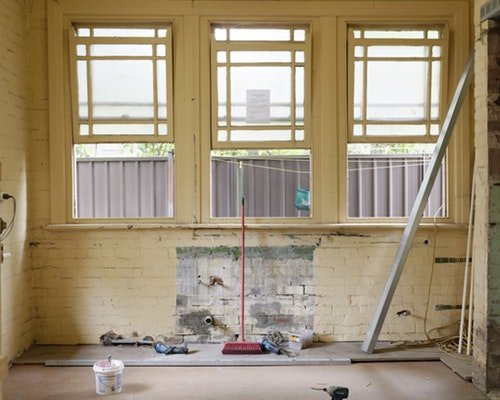Construction can be messy.
We know because we’ve seen plenty of mishaps over the years. One thing we’ve come across in our inspections are complications caused by DIY home improvement projects.
If you’re considering tackling a home improvement project in the near future, keep these tips in mind to ensure you’re on the right track.
Things to Keep in Mind
1. There will be problems.
Sometimes there’s no planning for the unexpected.
Considering how messy construction projects can get, you will likely face a few roadblocks.
Staying calm and embracing each situation is essential for not getting burnt out mid-way through a construction project. Stay cool and you’ll come up with a solution to get through any issue.
2. Set a clear budget.
Think about how much money you really have and are comfortable spending long before embarking on any home improvement venture.
The last thing you want is to run into financial troubles while you’re in the middle of remodeling your kitchen.
3. Invest in a contractor.
Hiring a contractor is not an area where you want to try to save money.
Finding one that you really trust is key to a successful project and will be well worth the payment.
Use referrals, read reviews and inquire about their experience to determine if a contractor is right for you. And don’t underestimate the power of intuition: You’ll be spending a lot of time together so go with your gut!
4. Organize your resources.
Know what you have readily available and what you’ll need to purchase or rent — this will also play a helping hand in your budget. Go through and make a list of what you have and you’ll save yourself time and money!
5. Pull out the original blueprints.
Having your original blue prints or any house plans from other home improvements over the years will be very helpful.
Offer these to your contractor and you’ll likely save everyone time, yourself money, and you’ll get the process moving along much faster.
6. Have a contract.
Before embarking on any journey that will impact your finances, you’ll want to have a contract in place.
If a contractor acts shady or refuses when you mention a contract, ditch them! The contract should include the company’s name, address, and phone number, and have start and completion dates, plus estimated cost written into it.
7. Lock down necessary permits.
If you’re taking on a big project, it’s likely that you will need a permit.
The contractor should provide the costs for all permits in your estimate; and usually the contractor is responsible for pulling the permits from local offices unless you agree otherwise.
Home improvements that may require permits include new windows, fences; structural changes, like building a deck; and plumbing and electrical work.
Ask your city council office for information on improvements and projects that require permits.
A clear idea and a little planning will go a long way in ensuring a successful home improvement project.
If you have any concerns or doubts about how a new project will affect your home, get in touch with us here or schedule a home inspection today!

